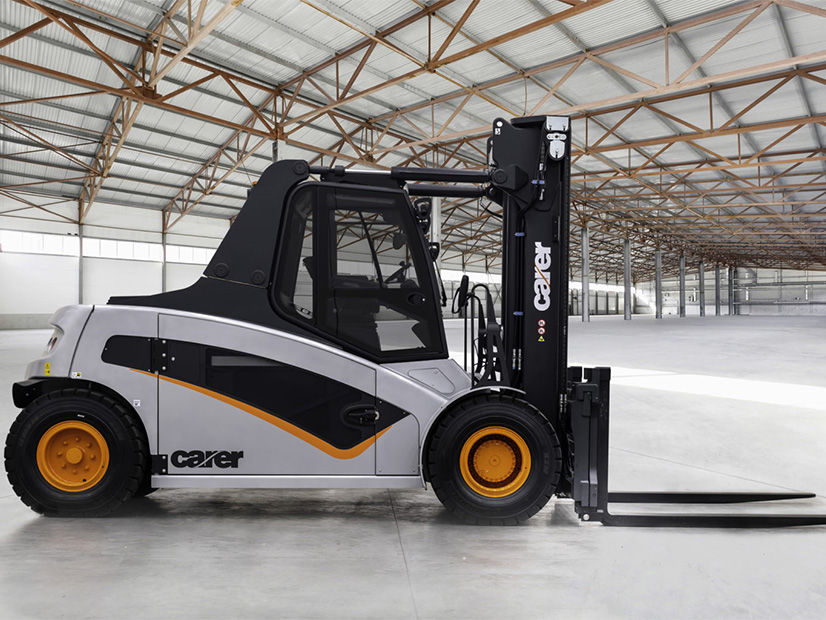
A California program to encourage the purchase of zero-emission off-road equipment has handed out more than $100 million in incentives since reopening this month.
The Clean Off-Road Equipment Voucher Incentive Project (CORE) opened on July 18 with $125 million in funding. As of Wednesday, $16.6 million remained.
CORE provides vouchers of up to $500,000 for the purchase of zero-emission equipment used in agriculture, airport, railyard, port, construction and marine operations. Types of equipment funded include terminal tractors, large forklifts, airport ground-support equipment and railcar movers.
CORE is a program of the California Air Resources Board (CARB), which uses proceeds from cap-and-trade auctions to fund the incentives. CALSTART, a national clean transportation nonprofit, administers CORE.
While off-road equipment makes up only a small percentage of vehicles in California, the equipment releases significant amounts of greenhouse gases, CARB said.
“CORE is specifically designed to assist industry sectors that currently use off-road equipment and can help clean up the communities hardest hit by air pollution,” CARB Deputy Executive Officer Craig Segall said in a statement.
CALSTART Deputy Director Niki Okuk said CORE increases awareness and adoption of zero-emission equipment in a range of industries while encouraging manufacturers to bring more equipment to market.
The program has been streamlined based on participant feedback, Okuk added. Buyers of zero-emission equipment can use the vouchers at the point of sale, and they’re not required to retire existing internal-combustion equipment.
“We are anticipating significant interest in this second round,” Okuk said in a statement this month.
CORE opened its first funding round in February 2020 with $44.6 million. That round closed in August of that year after issuing more than 460 vouchers.
The program, which was initially only for freight equipment, was expanded this year to include commercial harbor craft and agriculture and construction equipment.
CORE is initially offering up to 20% of its funding, or $25 million, to each of nine categories of equipment. Once a category reaches the $25 million cap, additional voucher requests are placed on a waiting list. CARB will re-evaluate the per-category cap after six months.
As of Wednesday, voucher requests for terminal tractors had reached $67.2 million, exceeding the $25 million per-category cap. Terminal tractors, which are used to move cargo containers or semi trailers over short distances, were also the most requested equipment type during CORE’s first funding round.
Other categories that exceeded the cap as of Wednesday were transport refrigeration units with $28.5 million in vouchers requested and construction equipment with $29.8 million requested.
If the caps are lifted, priority will go to requests from small businesses or projects in disadvantaged communities.
A funding map on CORE’s website gives more details on vouchers that have been issued. For example, five vouchers totaling $1.1 million went to Los Angeles County for railcar movers. In San Bernardino County, 70 vouchers totaling $11.9 million were issued for zero-emission terminal tractors.
In another new development for CORE, the program plans to allocate $30 million in incentives starting this fall for zero-emission equipment used by professional landscaping services. The equipment will include lawn mowers, leaf blowers, string trimmers and chainsaws. Funds will go to small businesses and sole proprietors.



